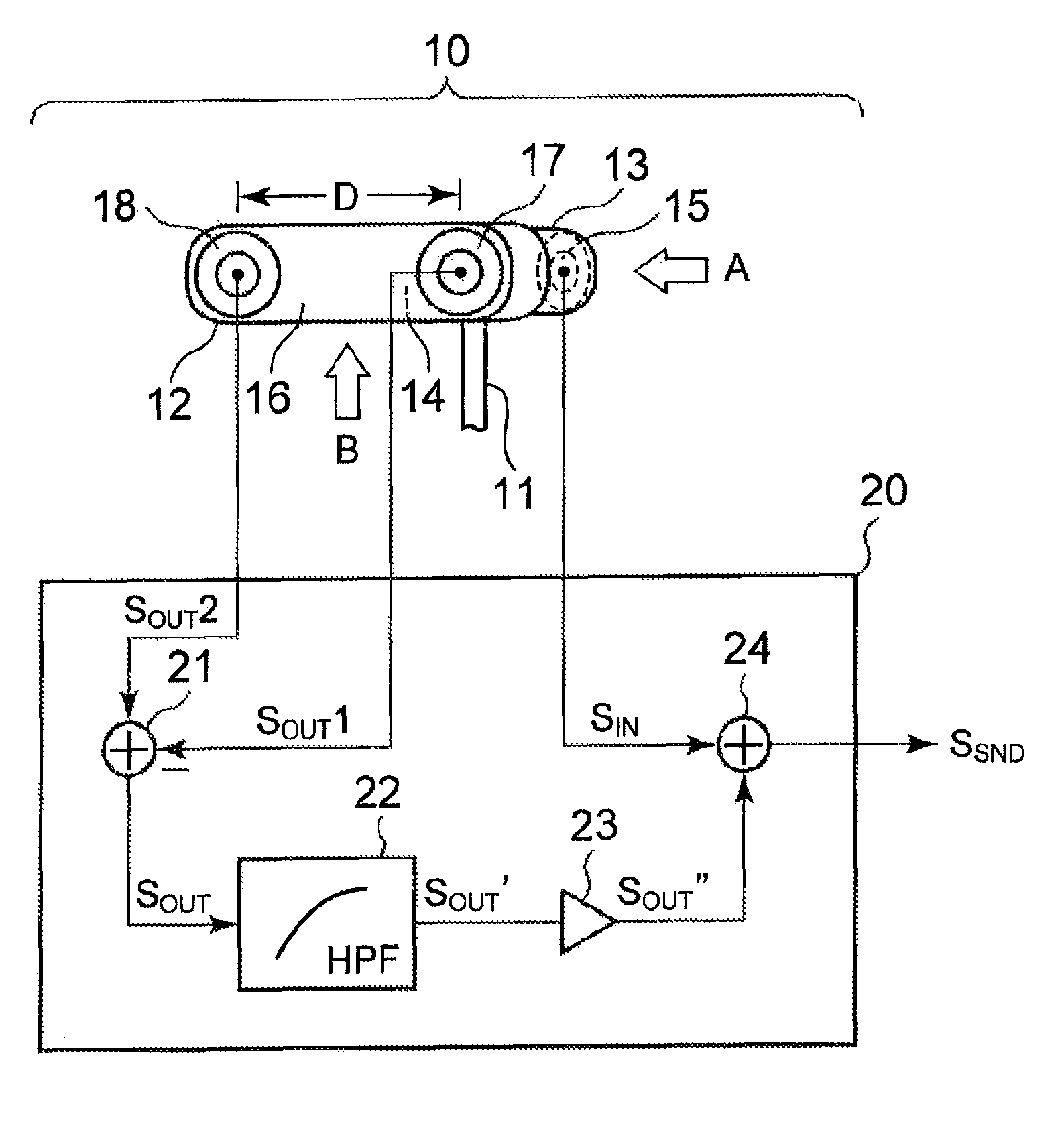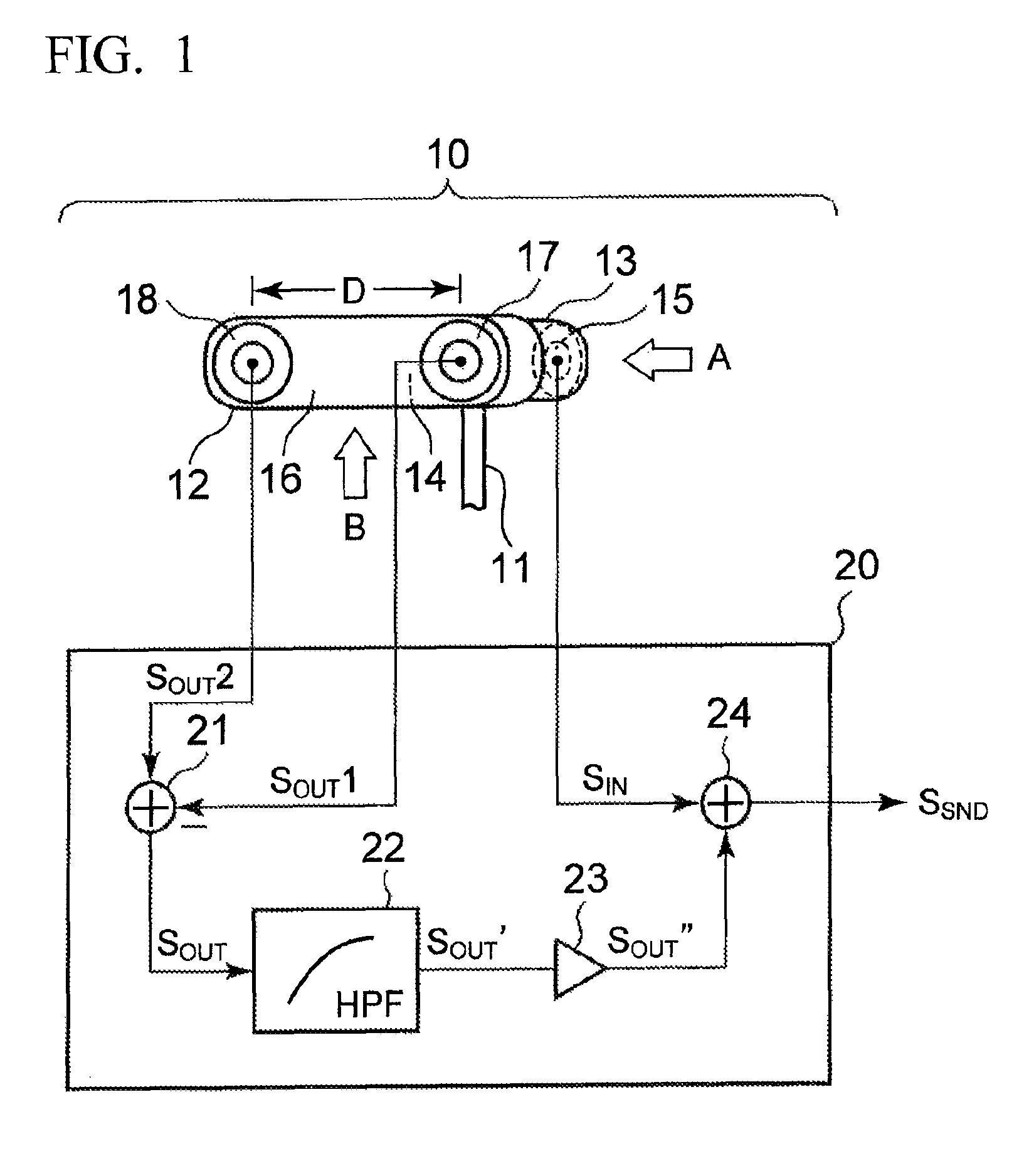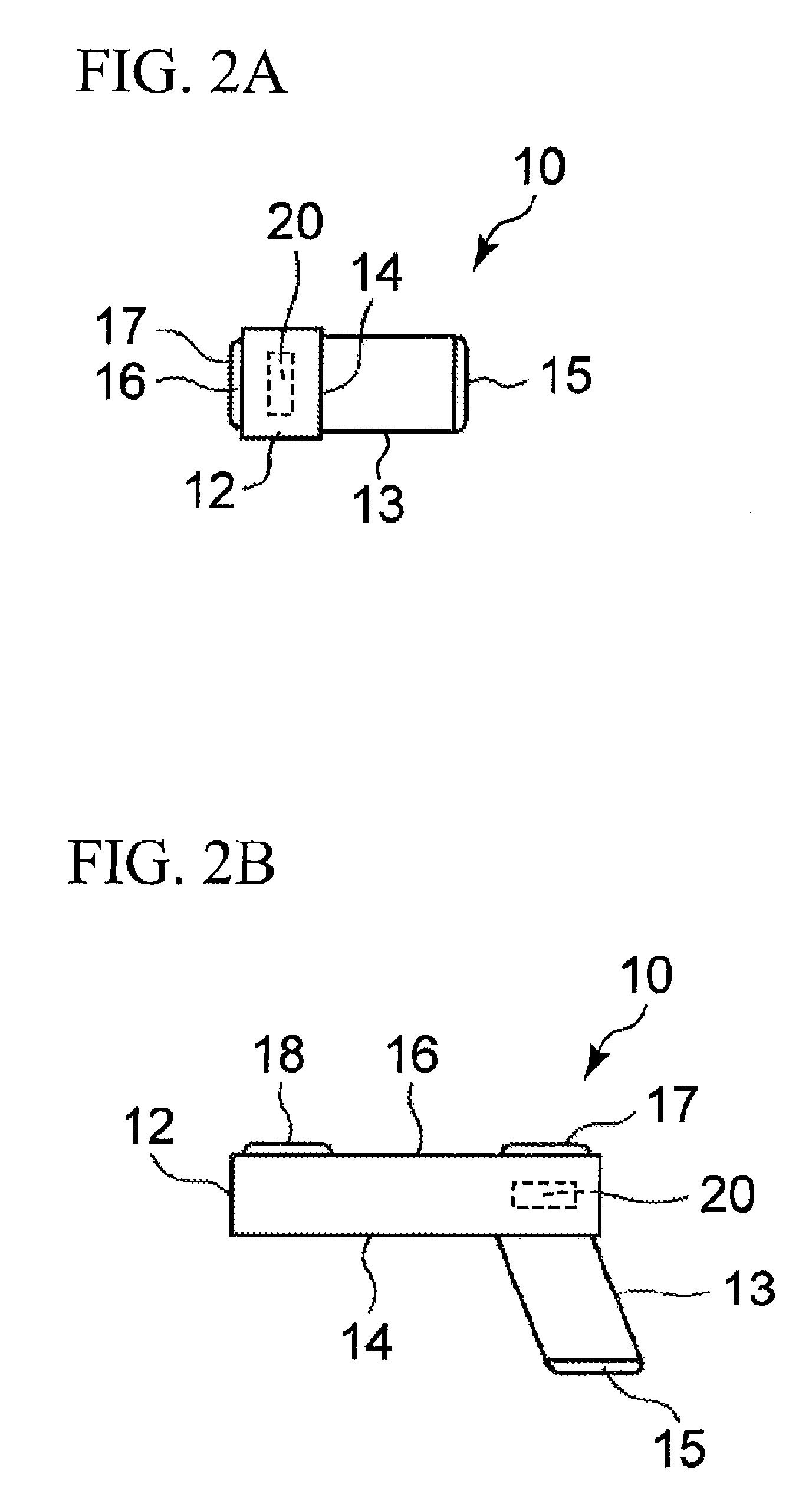Earphone microphone
a microphone and earphone technology, applied in the field of earphones/microphones, can solve problems such as difficulty in conducting smooth conversations
- Summary
- Abstract
- Description
- Claims
- Application Information
AI Technical Summary
Benefits of technology
Problems solved by technology
Method used
Image
Examples
first embodiment
1. First Embodiment
[0024]FIG. 1 shows the mechanical / electrical constitution of an earphone microphone 10 according to a first embodiment of the present invention. FIG. 2A is a front view of the earphone microphone 10 observed in a direction A in FIG. 1, whilst FIG. 2B is a side view of the earphone microphone 10 observed in a direction B in FIG. 1.
[0025]The earphone microphone 10 inputs a received sound signal SRCV from a mobile phone (or a cellular phone, not shown) via a cable 11 so as to output (or emit) a corresponding sound into an external auditory canal of a user's ear. In addition, the earphone microphone 10 receives both of an internal sound which is produced by a vocal cord and transmitted into an external auditory canal via a skull and an external sound which is output from a mouth and transmitted into an external auditory canal via an external space. The internal sound transmitted into an external auditory canal via a skull has a frequency range lower than 3 kHz. The ea...
second embodiment
2. Second Embodiment
[0047]FIG. 6 shows the mechanical / electrical constitution of an earphone microphone 10A according to a second embodiment of the present invention, wherein parts identical to those shown in FIG. 1 are designated by the same reference numerals. Compared to the earphone microphone 10 of the first embodiment in which two receivers 17, 18 are disposed on the external surface 16 of the main unit 12, the earphone microphone 10A of the second embodiment is equipped with one receiver 17 which is configured of a unidirectional microphone disposed on the external surface 16 of the main unit 12. In the earphone microphone 10A, the receiver 17 receives an external sound so as to generate a sound signal SOUT, which is supplied to the HPF 22. The HPF 22 attenuates low frequency components lower than 3 kHz in the sound signal SOUT, thus producing a sound signal SOUT′ including frequency components higher than 3 kHz. The sound signal SOUT′ is amplified in the amplifier 23, which ...
PUM
 Login to View More
Login to View More Abstract
Description
Claims
Application Information
 Login to View More
Login to View More - R&D
- Intellectual Property
- Life Sciences
- Materials
- Tech Scout
- Unparalleled Data Quality
- Higher Quality Content
- 60% Fewer Hallucinations
Browse by: Latest US Patents, China's latest patents, Technical Efficacy Thesaurus, Application Domain, Technology Topic, Popular Technical Reports.
© 2025 PatSnap. All rights reserved.Legal|Privacy policy|Modern Slavery Act Transparency Statement|Sitemap|About US| Contact US: help@patsnap.com



